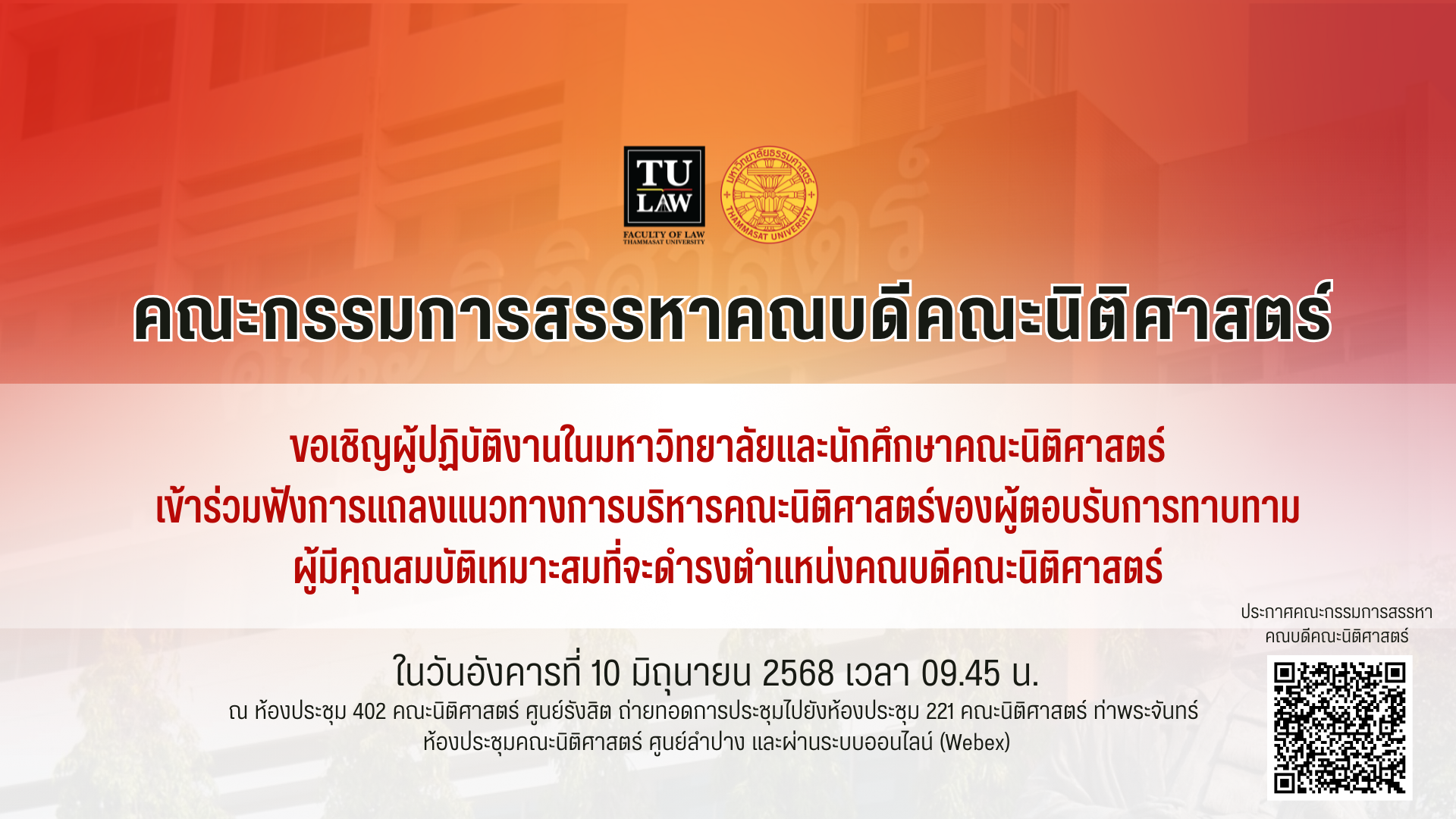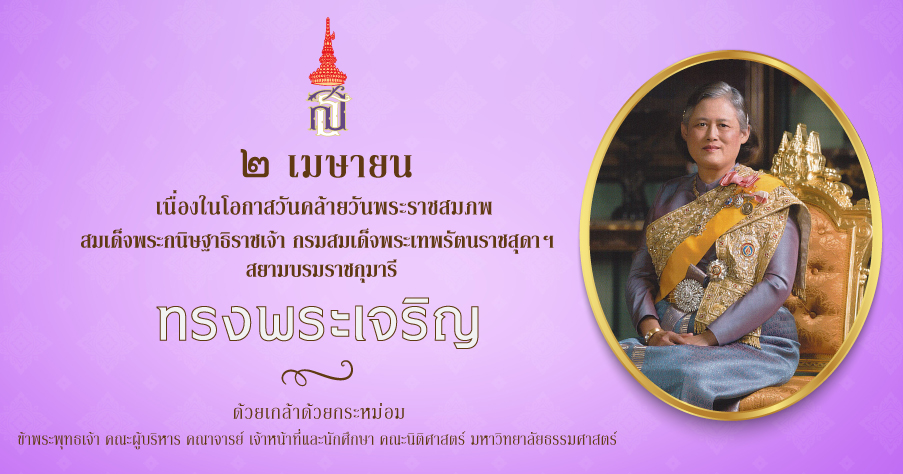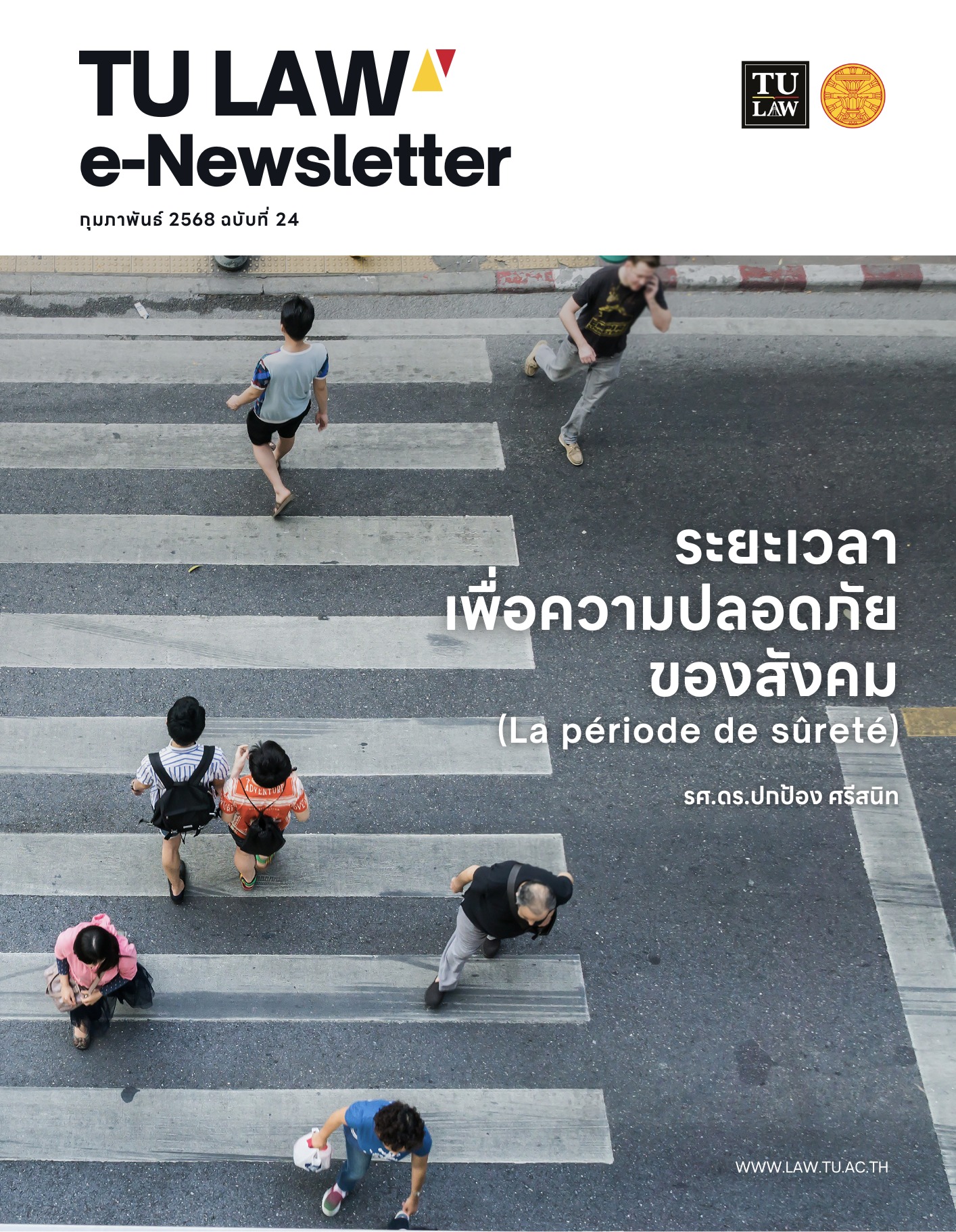
พ.ศ. 2566 คือปีที่ประเทศไทยถึงวาระการเลือกตั้งสมาชิกสภาผู้แทนราษฎรไทยเป็นการทั่วไปอีกครั้ง โดยเป็นการเลือกตั้งครั้งที่สองภายใต้รัฐธรรมนูญแห่งราชอาณาจักรไทย ฉบับพ.ศ. 2560 แต่กระนั้นกติกาในการเลือกตั้งครั้งนี้ก็ไม่เหมือนกับการเลือกตั้งครั้งแรกเมื่อ พ.ศ. 2562 เพราะรัฐสภาได้มีการแก้ไขเพิ่มเติมรัฐธรรมนูญเปลี่ยนแปลงระบบการเลือกตั้งไปจากเดิมแล้ว โดยเปลี่ยนจากระบบที่เรียกว่า “จัดสรรปันส่วนผสมแบบบัตรใบเดียว” กลายเป็นระบบ “ผสมแบบคู่ขนานใช้บัตรสองใบ”
ปัญหาประเด็นว่าระบบเลือกตั้งแต่ละแบบมีข้อดี-ข้อเสียแตกต่างกันอย่างไร และแต่ละระบบจะส่งผลต่อโครงสร้างการเมืองทางความเป็นจริงแบบไหนนั้น แม้จะยังเป็นประเด็นซึ่งร่วมสมัยอยู่ตลอดเวลา แต่ก็เป็นเรื่องที่มีผู้ได้กล่าวเอาไว้เยอะพอสมควรในที่ต่าง ๆ แล้ว ที่จริงนั้นประเด็นเกี่ยวกับกฎหมายเลือกตั้งยังคงมีแง่อื่น ๆ อีกหลายมุมให้ถกเถียงรวมถึงศึกษาตัวอย่างเปรียบเทียบจากต่างประเทศได้ โดยบทความนี้จะลองนำเสนอประเด็นเกี่ยวกับข้อถกเถียงเรื่องการวินิจฉัยคดี “โมฆะการเลือกตั้ง” ที่กำลังเป็นที่ถกเถียงกันอยู่ในประเทศสหพันธ์สาธารณรัฐเยอรมนีในปัจจุบัน เพื่อทำความเข้าใจหลักการที่ถูกหยิบยกขึ้นมาอภิปรายกันเป็นเบื้องต้น เผื่อว่าในอนาคตการเลือกตั้งของประเทศไทยจะพุ่งเข้าหาทางตันอย่างเช่นในอดีตอีก ซึ่งอาจไม่ใช่เรื่องไกลตัวหรือจะเป็นไปไม่ได้เลย หากมองจากสถิติเชิงประจักษ์ในรัฐธรรมนูญถาวรสองฉบับล่าสุดที่ถูกล้มล้างไปที่ว่าเคยมีการเลือกตั้งเกิดขึ้นเพียงฉบับละสามครั้ง แต่ก็มีการตัดสินให้การเลือกตั้งทั่วประเทศเป็น “โมฆะ” แล้วถึงสองครั้ง ซึ่งคิดคำนวณได้เป็นสถิติหนึ่งในสามจากทั้งหมด
กรณีที่จะหยิบยกมากล่าวถึงคือปัญหาในการเลือกตั้งซึ่งเกิดขึ้น ณ นครรัฐเบอร์ลิน เมืองหลวงของประเทศสหพันธ์สาธารณรัฐเยอรมนีเมื่อวันที่ 26 กันยายน ค.ศ. 2021 (พ.ศ. 2564) โดยในวันดังกล่าวนั้นพลเมืองเบอร์ลินมีภารกิจที่จะต้องไปยังหน่วยเลือกตั้งเพื่อใช้สิทธิในฐานะพลเมืองถึงสี่เรื่อง คือ การเลือกตั้งสมาชิกสภาผู้แทนราษฎรแห่งสหพันธ์ การเลือกตั้งสมาชิกสภาผู้แทนนครรัฐเบอร์ลิน การเลือกตั้งสมาชิกสภาท้องถิ่น และการลงประชามติเกี่ยวกับการเวนคืนอสังหาริมทรัพย์จากบริษัทเอกชนเป็นของรัฐเพื่อแก้ไขปัญหาด้านราคาและการขาดแคลนที่อยู่อาศัย ด้วยเหตุที่ผู้มีสิทธิเลือกตั้งแต่ละคนมีเรื่องที่จะต้องลงคะแนนหลายประการพร้อมกัน ทำให้ระยะเวลาที่ต้องใช้ในการตัดสินใจต่อบุคคลนั้นยาวนานกว่าปกติ ประกอบกับข้อเท็จจริงที่ว่าวันดังกล่าวนั้นตรงกับงานวิ่งเบอร์ลินมาราธอนซึ่งมีผู้เข้าร่วมจำนวนมากและมีเหตุให้ต้องปิดการจราจรกรุงเบอร์ลินในหลายเส้นทางที่ส่งผลกระทบต่อการสัญจรของผู้ประสงค์ไปใช้สิทธิเลือกตั้งอย่างไม่อาจเลี่ยงได้ เหตุทั้งหมดนี้จึงเป็นที่มาของภาพการต่อแถวยาวเหยียดของผู้มีสิทธิเลือกตั้งในหลายหน่วยเลือกตั้งที่แม้จะถึงเวลาต้องปิดหีบแล้วแต่ก็ยังมีผู้ต้องการใช้สิทธิของตนยืนรออยู่หน้าหน่วยเลือกตั้งอีกเป็นจำนวนมาก หลายหน่วยเลือกตั้งจึงอนุญาตให้ผู้ที่ต่อคิวอยู่แล้วสามารถใช้สิทธิได้หลังเวลาปิดหีบอย่างเป็นทางการ
ปัญหาทางกฎหมายจึงเกิดขึ้นมาว่าการอนุญาตเช่นนั้นขัดกับหลักการพื้นฐานของการเลือกตั้งที่กฎหมายรัฐธรรมนูญรับรองไว้หรือไม่ เพราะว่าเมื่อถึงเวลาปิดหีบ สื่อมวลชนก็ได้รายงานผลเอกซิตโพลออกมา ทำให้ผู้กำลังต่อคิวเพื่อใช้สิทธิล่วงเวลานั้นสามารถทราบข้อมูลดังกล่าวได้จากอุปกรณ์สื่อสารอิเล็กทรอนิกส์ของตน ซึ่งข้อมูลดังกล่าวย่อมมีอิทธิพลต่อการตัดสินใจลงคะแนนเสียงได้ นอกจากนี้ยังปรากฏปัญหาเกี่ยวกับบัตรลงคะแนนที่มีการจัดพิมพ์กระจายส่งไปผิดเขตเป็นจำนวนมาก ทำให้บัตรเลือกตั้งที่ใช้ได้อย่างถูกต้องในหลายหน่วยเลือกตั้งมีไม่เพียงพอ หลายหน่วยเลือกตั้งจึงเลือกที่จะสั่งปิดการลงคะแนนเป็นการชั่วคราวโดยไม่แจ้งเวลาเปิดใหม่ที่แน่นอนให้แก่ผู้ประสงค์จะใช้สิทธิ ขณะที่หลายหน่วยตัดสินใจทำสำเนาบัตรเลือกตั้งขึ้นมาเองโดยที่ไม่มีกฎหมายให้อำนาจ หรือบางหน่วยก็ให้ผู้ใช้สิทธิลงคะแนนในบัตรเลือกตั้งที่ส่งมาไม่ถูกต้องไปเลย ซึ่งทั้งสองกรณีนี้ต้องนับว่าเป็นบัตรเสียและคะแนนที่ลงนั้นเป็นการลงคะแนนที่ใช้ไม่ได้ โดยมีข้อมูลเชิงสถิติซึ่งแสดงถึงปัญหาทั้งหมดในวันดังกล่าวออกมาว่า มีการลงคะแนนในบัตรเลือกตั้งที่ไม่ถูกต้องกว่า 2,000 ใบ และมีการลงคะแนนในบัตรสำเนาอีกหลายพันใบ ขณะที่เวลาที่มีการปิดหน่วยเลือกตั้งชั่วคราวนั้นรวมกันได้กว่า 6,300 นาที ส่วนเวลาที่มีการเปิดต่อไปหลังเวลาปิดหีบอย่างเป็นทางการนั้นรวมกันได้กว่า 22,000 นาที
จากปัญหาดังกล่าว จึงมีการยื่นเรื่องตามช่องทางของกฎหมายให้องค์กรที่มีอำนาจวินิจฉัยความชอบด้วยกฎหมายและความสมบูรณ์ของการจัดการเลือกตั้งเข้ามาพิจารณา โดยในส่วนที่กระทบต่อการเลือกตั้งสมาชิกสภาผู้แทนนครรัฐเบอร์ลินและการเลือกตั้งสมาชิกสภาท้องถิ่นนั้น องค์กรที่มีอำนาจวินิจฉัยคือศาลรัฐธรรมนูญแห่งนครรัฐเบอร์ลิน ขณะที่ในส่วนที่กระทบต่อการเลือกตั้งสมาชิกสภาผู้แทนราษฎรแห่งสหพันธ์นั้น องค์กรที่มีอำนาจวินิจฉัยคือสภาผู้แทนราษฎรแห่งสหพันธ์เอง โดยอาจโต้แย้งมติของสภาผู้แทนราษฎรไปที่ศาลรัฐธรรมนูญแห่งสหพันธ์ได้ต่อไป
ในวันที่ 10 พฤศจิกายน ค.ศ. 2022 สภาผู้แทนราษฎรแห่งสหพันธ์มีมติเสียงข้างมากให้มีการจัดการเลือกตั้งสมาชิกสภาผู้แทนราษฎรแห่งสหพันธ์ซ้ำใน 431 หน่วยเลือกตั้งจากทั้งหมด 2,256 หน่วย ขณะที่ศาลรัฐธรรมนูญแห่งนครรัฐเบอร์ลินได้มีคำวินิจฉัยเมื่อวันที่ 16 พฤศจิกายน ปีเดียวกัน ให้มีการจัดการเลือกตั้งสมาชิกสภาผู้แทนนครรัฐเบอร์ลินและการเลือกตั้งสมาชิกสภาท้องถิ่นซ้ำทั้งหมด โดยอธิบายว่าความผิดพลาดในการเลือกตั้งที่ดำรงอยู่บนสถิติประมาณการว่ามีคะแนนเสียงเลือกตั้งมากกว่า 20,000 คะแนนที่ไม่เป็นไปตามหลักการเลือกตั้งโดยทั่วไป โดยเสรี และโดยเสมอภาค นั้นเป็นจำนวนที่มากและถือเป็นเรื่องร้ายแรงที่อาจส่งผลถึงจำนวนผู้แทนในสภาทั้งแบบบัญชีรายชื่อและแบบแบ่งเขตได้ถึงเกือบร้อยละหกสิบ โดยเมื่อพิจารณาถึงวัตถุประสงค์ของการเลือกตั้งที่เป็นการแสดงเจตจำนงร่วมกันของประชาชนในห้วงขณะเดียวกันเพื่อตัดสินใจ ณ เวลาใดเวลาหนึ่งแล้ว การให้มีการจัดการเลือกตั้งซ้ำเพียงบางส่วนแบบที่สภาผู้แทนราษฎรแห่งสหพันธ์วินิจฉัยกรณีการเลือกตั้งระดับสหพันธ์อาจจะไม่เหมาะสม จึงตัดสินให้การเลือกตั้งทั้งหมดไม่สมบูรณ์และให้มีการจัดการเลือกตั้งซ้ำในทุกหน่วยและทุกเขตเลือกตั้งของนครรัฐเบอร์ลินสำหรับการเลือกตั้งสมาชิกสภาผู้แทนนครรัฐเบอร์ลินและการเลือกตั้งสมาชิกสภาท้องถิ่น
จะเห็นได้ว่าปัญหาข้อผิดพลาดที่เกิดขึ้นเหมือนกันในกาลและสถานที่เดียวกันไม่จำเป็นต้องนำไปสู่ผลลัพธ์เดียวกันเสมอ ทั้งนี้ปัจจัยสำคัญก็เพราะสัดส่วนของความเสียหายเมื่อพิจารณานครรัฐเบอร์ลินในฐานะหนึ่งส่วนของมลรัฐอื่น ๆ ทั่วทั้งสหพันธ์กับนครรัฐเบอร์ลินในฐานะหน่วยหนึ่งในตัวเองก็ย่อมแตกต่างกันอยู่แล้วโดยสภาพ นอกจากนี้ด้วยเหตุที่หลักเกณฑ์เกี่ยวกับการกำหนดผลของการเลือกตั้งที่ไม่ชอบด้วยกฎหมายในระบบกฎหมายรัฐธรรมนูญเยอรมันไม่ได้มีการบัญญัติกฎหมายสารบัญญัติเอาไว้เป็นลายลักษณ์อักษร แต่มีเพียงแนวทางที่ศาลรัฐธรรมนูญแห่งสหพันธ์เคยได้วินิจฉัยเท่านั้น จึงทำให้อาจมีการตีความที่แตกต่างกันได้ อนึ่ง แนวทางที่ศาลรัฐธรรมนูญแห่งสหพันธ์ได้วางเอาไว้ในการพิจารณานั้นมีอยู่ว่าความบกพร่องในการเลือกตั้งจะต้องมีความเกี่ยวข้องสัมพันธ์กับเรื่องความเป็นผู้แทนคือมีผลกระทบหรืออาจกระทบต่อการแบ่งสรรที่นั่งในสภา โดยต้องพิจารณาถึงความเป็นไปได้ที่อาจจะกระทบอย่างน้อยที่สุดประกอบกับหลักความได้สัดส่วน และต้องคำนึงถึงสถานะของรัฐสภาที่ได้รับเลือกตั้งมาแล้วประกอบกับหลักความเชื่อถือไว้วางใจในการกระทำตามกฎหมายด้วย ทั้งนี้ คำวินิจฉัยนั้นควรมีขึ้นเพื่อมุ่งแก้ไขความบกพร่องที่เกิดขึ้นเป็นสำคัญ ไม่ใช่มุ่งให้นำไปสู่การเลือกตั้งใหม่ในทุกกรณี และควรจะจำกัดเฉพาะในส่วนที่เกี่ยวข้องกับปัญหาจริง ๆ เท่านั้น หากจะมีคำวินิจฉัยให้การเลือกตั้งทั้งประเทศไม่สมบูรณ์จะต้องเป็นกรณีที่ได้ความว่าทางออกดังกล่าวเป็นหนทางสุดท้ายแล้วจริง ๆ โดยความบกพร่องจะต้องมีน้ำหนักอย่างร้ายแรงในระดับที่เหลือจะทานทนได้
รายละเอียดเกี่ยวกับการตรวจสอบการเลือกตั้งในเยอรมนีนั้นผู้สนใจอาจศึกษาเพิ่มเติมได้จากรายงานการวิจัยเรื่องกฎหมายเลือกตั้งสมาชิกสภาผู้แทนราษฎรแห่งสหพันธ์สาธารณรัฐเยอรมนีของผู้เขียนที่เสนอต่อ คณะกรรมการส่งเสริมงานวิจัยคณะนิติศาสตร์ มหาวิทยาลัยธรรมศาสตร์ (มิถุนายน พ.ศ. 2559) ในขณะที่รายละเอียดเกี่ยวกับปัญหาการเลือกตั้ง ณ นครรัฐเบอร์ลินโดยพิสดารนั้นก็อาจจำเป็นต้องไปศึกษาในรูปแบบบทความวิชาการต่อไป อย่างไรก็ตามในโอกาสนี้อาจมีข้อสังเกตที่น่าสนใจเมื่อพิจารณาเทียบกับประเด็นปัญหาที่เคยเกิดในประเทศไทยอยู่บางประการ เผื่อว่าในอนาคตจะมีใครกล่าวอ้างกรณีนี้ขึ้นมาเพื่อสนับสนุนความชอบธรรมของเรื่องที่เกิดขึ้นในประเทศไทยว่าที่เยอรมันนั้นก็เคยมีการ “โมฆะการเลือกตั้ง” เหมือนกัน
ประการแรก คำวินิจฉัยที่มีผลเป็นการโมฆะในกรณีนี้เป็นเพียงการเลือกตั้งในระดับมลรัฐไม่ใช่การเลือกตั้งทั่วประเทศ ประการที่สอง หากไปดูการเขียนคำวินิจฉัยก็จะพบการให้เหตุผลที่ละเอียดและครบถ้วนความยาวร่วมร้อยหน้าแตกต่างจากการทำคำวินิจฉัยของศาลรัฐธรรมนูญไทยทั้งสองกรณีที่เคยมีมาโดยสิ้นเชิง และประการสุดท้าย คำวินิจฉัยนี้มีที่มาจากเขตอำนาจของศาลในการตรวจสอบการเลือกตั้งตามที่รัฐธรรมนูญกำหนดเอาไว้ แตกต่างจากคดีทั้งสองของไทยที่ล้วนแต่ใช้ช่องทางเขตอำนาจแบบผิดฝาผิดตัวเพื่อมาตัดสินให้การเลือกตั้งเป็นโมฆะ ไม่ใช่เขตอำนาจที่มีเพื่อตรวจสอบการเลือกตั้งโดยตรงเหมือนอย่างในเยอรมันแต่อย่างใด
กิจกรรมนักศึกษาประจำเดือนมกราคม 2566
- LL.B. Thaprachan Open House 2022 : https://bit.ly/3Dy7Quu
- Take a break with Niti : https://bit.ly/3wRpdlX
- Law Tu Back To School : https://bit.ly/3wJlN4H
The Controversy over the “Void Elections” Case in Germany
Lecturer Dr. Poonthep Sirinupong
2023 is the year when Thailand is scheduled to hold another general election of members of the Thai House of Representatives. It is the second election under the 2017 Constitution of
the Kingdom of Thailand. However, this election is not the same as the first, in 2019, because parliament has amended the Constitution and changed the electoral system from a system called “mixed single vote” to a “mixed parallel two-vote” system.
The issue of the advantages and disadvantages of different electoral systems, and
how each system affects the real political framework – issues which are always important, including at the present moment – are matters on which much has already been said. In fact, there are many other issues relating to electoral law and various other aspects to discuss and study by comparing examples from abroad. In this article, we will attempt to address the controversy surrounding the opinion in the “Void Elections” case, which is currently being debated in the Federal Republic of Germany, to form a fundamental understanding of the principles that are under discussion in case Thailand’s elections hit a dead end once again: something that might not be so very far off or impossible. If we look at the statistics, there were only three elections in each of the last two permanent constitutions, but it was twice decided that a general election was “void” – a third of the total number.
The case that we will discuss concerns the election that took place in the city of Berlin,
the capital of the Federal Republic of Germany, on 26 September 2021. On that day, citizens of Berlin were called to the polls to exercise their rights of citizenship by voting on four matters: elections to the House of Representatives of the Federation, elections to the House of Representatives of the City of Berlin, local council elections, and a referendum on the expropriation of real estate from private companies to the state in order to solve the problem of prices and shortages of residential accommodation. Since each voter had several matters to vote on, the time required for each person to make a decision was longer than usual. In addition,
the Berlin Marathon took place on that day, with a large number of participants, resulting in the closure of many roads and the inevitable impact on those wishing to exercise their rights to vote in the elections. All this resulted in long lines of voters at polling stations. Even when it came time for the polls to close, there were many people still queuing outside wanting to exercise their rights. Many polling stations therefore permitted the people in the queue to exercise their voting rights after the official closing time of the polls.
A legal question arises as to whether such permission is contrary to the fundamental principles of elections recognised by constitutional law. For, at the time when the polls closed, the media reported the results of the exit polls, allowing those still queuing to exercise their rights in ‘extra time’ to know this information via their electronic communication devices.
This information may influence their voting decisions. Furthermore, a large number of ballot papers were printed and distributed to the wrong districts, resulting in insufficient number of valid ballot papers in many polling stations. Many polling stations temporarily stopped voting without clearly informing voters of the reopening time. Some polling stations decided to make copies of ballot papers themselves without legal authority, and others permitted voters to vote on incorrectly sent ballot papers. In both cases, the ballot papers were considered voided, and
the vote cast invalid. With statistical data showing all the problems that day, it came out that more than 2,000 votes were cast on incorrect ballots, and thousands more were cast on duplicate ballots. The total time when polling stations temporarily closed adds up to more than 6,300 minutes, while the time that voting continued after the official closing time totals more than 22,000 minutes.
Due to these problems, the matter was submitted through legal channels to the body with jurisdiction over the legality and integrity of the management of the election. In the case of the elections for the Berlin City Council and the local councils, the body with jurisdiction is
the Constitutional Court of Berlin. In the case of the election of members of the Federal House of Representatives, the body with jurisdiction is the Federal House of Representatives itself, with any challenge to a resolution of the House of Representatives lying to the Federal Constitutional Court.
On 10 November 2022, the Federal House of Representatives passed a majority vote to hold new elections for the Federal House of Representatives in 431 out of the total number of 2,256 polling stations. On 16 November of the same year, Berlin’s highest court ordered new elections for the Berlin City Council and all local councils, with the explanation that the electoral errors, which based on statistics were estimated to impact more than 20,000 electoral votes, contravened the principles of general, free and equal elections. This is a huge number, and it is considered a serious matter which may have an impact on the number of party-list members, and in some districts impacted almost 60% of votes. Considering that the objective of an election is to simultaneously express the collective will of the people to make a decision at a particular time, it may not be appropriate to hold partial re-elections in the way the Federal House of Representatives has decided, in the case of the federal elections. Therefore, it was decided that all the elections would be held invalid, and that elections would be repeated in all polling stations and districts of the city of Berlin for the Berlin City Council and local council elections.
It can be seen that the same error occurring at the same time and place does not always necessarily lead to the same result. This is important because the proportion of damage when considering the city of Berlin as a part of the other states throughout the Federation is different from considering the city of Berlin as a unit. In addition, the system of German constitutional laws does not have written substantive legal provisions that determine what results in an illegal election. Rather, there are only opinions of the Federal Constitutional Court, which act as guidelines. As a result, there may be different interpretations. The guidelines that the Federal Constitutional Court has laid down in its deliberations is that the electoral defects must be related to the matter of representation. That is, one that has an impact, or may have an impact, on the allocation of seats in the House. It is necessary to consider if there is at least
the merest possibility, using the principle of proportionality, and taking into account the status of the parliament being elected, along with the principle of maintaining trust in legal processes. Thus, from this opinion, the primary aim is to correct the defect that has occurred and not aim to bring about new elections in every case and should be limited to aspects which relate to genuine problems only. If there is a decision that a national general election is invalid, and
it is a situation in which the solution is a new election, this should be truly a last resort, in which the shortcomings of holding the election are seriously outweighed to a level that is acceptable.
For details on monitoring elections in Germany, interested parties may learn more from the author’s research report on the Election Law of the Federal Republic of Germany, submitted to the Faculty of Law Research Promotion Committee Thammasat University (June 2016), while the details of the strange electoral problems in Berlin may need to be further studied in the form of academic articles. However, on this occasion, some interesting observations may be made through comparison with some issues that have occurred in Thailand, in the event that,
in the future, someone may use this case to support the legitimacy of an issue arising in Thailand, claiming that Germany has also had “Void Elections”.
First, the ruling which resulted in the voidance in this case only applied to elections on the state level and did not apply to elections at the national level. Second, if you look at
the wording of the decision, you will find detailed and thorough reasoning, one hundred pages in length. This is starkly different to the decisions of the Thai Constitutional Court in both of
the previous cases. And finally, the ruling stems from the court’s jurisdiction to review elections as determined by the constitution. This differs from both of the cases in Thailand,
in which jurisdictional channels of the wrong type were used to come to the decision that elections were void, not using any jurisdiction which they had to monitor elections directly,
like in Germany.
TU Law Student Activities in January 2023
- LL.B. Thaprachan Open House 2022 : https://bit.ly/3Dy7Quu
- Take a break with Niti : https://bit.ly/3wRpdlX
- Law Tu Back To School : https://bit.ly/3wJlN4H







![มุมมองอาจารย์กับการจัดการความเครียด 101 [ Season 3] EP.4 : ศาสตราจารย์ ดร.กำชัย จงจักรพันธ์](https://law.tu.ac.th/wp-content/uploads/2025/02/S__69697550-1.jpg)
